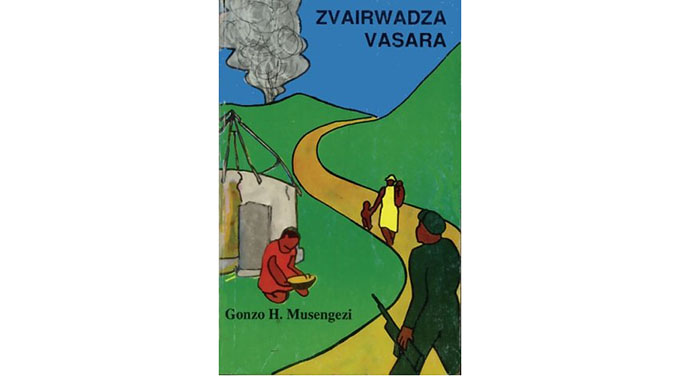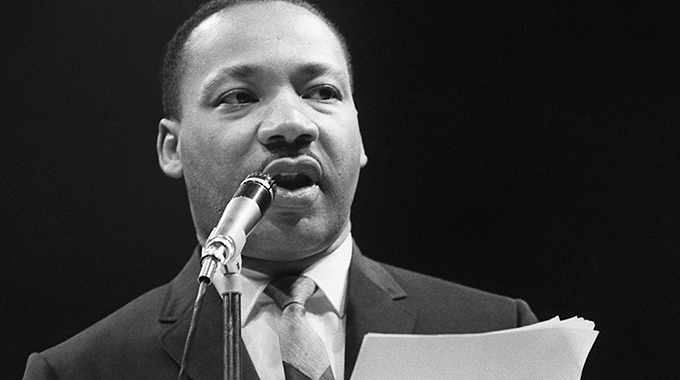Of blindness, deceitful sight
Elliot Ziwira At the Bookstore
Friedrich Nietzsche’s “The Parable of the Madman” in “The Gay Science” (1882) exposes the inadequacies of Man, his quest for power and deification; the vices, follies and voyeur inherent in him, which derives excitement from trauma and suffering.
In Nietzsche’s view with the death of God, at Man’s hand, not so much literal, but metaphorical, Man becomes his own master in a kingdom devoid of morality, equality, rational order or restrictions. He wishes to have no religious restrictions, for as his heart plays tomfoolery with him, like the fool in Psalms 53 vs 1, to him, “There is no God.”
Religion, which as Karl Marx puts it “is an opium of the people” puts checks and balances on rational thought and, therefore, regulates behaviour, without which humanity is doomed.
But the telling question remains whether escapism through religion is the panacea in an existentialist and nihilistic world where the glaring disparities between the poor and the rich are debilitating to the soul.
In the obtaining situation can religion not be used to hoodwink the poor through offering them a temporary reprieve from their suffering, instead of helping them to improve their lot?
Against this backdrop the reading of George Mujajati’s play “The Wretched Ones” (1989) is made unique and revealing. Notwithstanding the satiric hilarity on the surface, the play highlights the nature of suffering; desperation, despondency, unemployment and hopelessness in juxtaposition with affluence, individualism, materialism, conceit, hypocrisy, deceit, cruelty and corruption.
Through characterisation, setting and style, Mujajati examines the unequal and tragic nature of life. Adeptly using nihilistic, surrealistic and realistic traits of modernism, the playwright purveys the sordid and mundane existence of the common man, burdened by abject poverty a stone’s throw away from opulence and abundance.
“The Wretched Ones” depicts the sad story of Lazarus, a Grade Six drop out living with his pregnant wife Patricia and their daughter Liza; his only kith and kin, in a plastic abode in a squatter camp.
Occupants of this camp located in a farm belonging to a businessman, Buffalo are drawn from the real scum of the earth; the kind of people portrayed in Franz Fanon’s “The Wretched of the Earth” (1967), who scantly afford “a piece of bread per day” or “a decent meal per week”.
Drunk on malnourished hope Lazarus goes job-hunting every day to no avail much to the chagrin of his impatient wife, who tells him that, “Looking-for-a-job that is your job! Do you think that you shall find another job other than that one?”
A man feels castrated in situations like these where his inadequacies are exposed when he is convinced that it “is not of (his) own making”; consequently, this creates a desperate and hopeless feeling, robbing him of all he thinks he has — his manhood.
In the sub-plot a tag of war rages on in Povo’s Mother’s “household” as she accuses her bed-ridden husband of laziness, and her hungry son of stealing, for helping himself to the only piece of bread in the house.
Worn out by poverty in the periphery of an opulent household, whose fat cook is deaf to their pleas to spare them bowls of leftovers; preferring instead to throw them into the rubbish bin, pitting them against vicious and marauding dogs, the miserable occupants of the camp trudge on to the Utopia of their dreams.
Like scare-crows in a flourishing field, the swamp dwellers are reduced to malnourished parasites, stung by emasculating hunger and disease.
Such is the reality of life, and their only hope is God, the Almighty. Because poverty “is the big sell-out” as Mashingaidze Gomo reasons in “A Fine Madness” (2010), with pangs of hunger kicking them painfully in the stomach, the squatters resort to Buffalo’s maize crop for survival by taking a cob or two.
Poor Lazarus, like his biblical namesake, suffers a double blow as his daughter Liza dies after eating one of the cobs that Buffalo has poisoned to fix them; and he is arrested for stealing two cobs to feed his family. For the offence the poor man is sentenced to pay a fine of $2 or 30 days with labour.
Much to the annoyance of the magistrate and the astonishment of the packed courtroom, Lazarus is unable to raise the fine.
To him $2 is a lot of money.
Drenched in misfortune the tragic hero learns upon release of his daughter’s demise and his wife’s miscarriage. As if that were not enough, Buffalo descends on their camp with armed policemen, whom he pays to evict them and set their shacks ablaze.
Appealing to the Almighty God to come to their aid through divine protection against “the evil one who is planning to destroy us”, the swamp inhabitants sang a hymn, but to no avail. Witnessing first hand the fallacy of Moses, the raven’s Sugar Candy Mountain; a utopian place where the downtrodden would converge and rejoice to plenty, in George Orwell’s “Animal Farm” (1945), Lazarus makes up his mind that he is done with the deceitful nature of sight.
Inspired by Thomas Edison, who refused to have correctional surgery to restore his hearing, fearing that he, “Would have difficulty relearning how to channel his thinking in an ever more noisy world,” Lazarus closes his eyes and refuses to open them for two days earning himself a verbal lashing from his wife.
Eventually, he gouges his eyes out with a needle, for he is “tired of seeing a world full of riches, luxuries and plenty,” because, he says, “For me they do not really exist . . . They told me lies. They told me lies of sweet things which I will never enjoy.
“They told me lies of a sweet and rich life which will never exist! I would rather see this darkness, because I own nothing more than darkness . . . So I want to see nothing more than this darkness”.
Such is the sad state of affairs in an existentialistic, nihilistic and surrealistic world where Job-Owners riding on their financial muscle or chicanery to win tenders, sub-contract poverty-stricken skilled manpower for a pittance, in the same way that agencies lambasted in the sub-plot obtaining in Daniel, Buffalo’s son’s play within the play, “1999” do.
When Man plays God, in the belief that he owns the universe, he becomes blind to the plight of the feeble and vulnerable, who would rather be blind, instead of being witnesses to a paradise they do not belong to.
It is this status quo which has prompted the Madman in Friedrich Nietzsche’s “The Parable of the Madman” (1882) to ask, “Where has God gone?” as he is convinced that “We have killed him . . .You and I.”
As Easter approaches the words of the Madman ring on: “God is dead. God remains dead.
“And we have killed him. Yet his shadow still looms. How shall we comfort ourselves, the murderers of all murderers?
“What was holiest and mightiest of all that the world has yet owned has bled to death under our knives: who will wipe this blood off us? Is not the greatness of this deed too great for us?
Must we ourselves not become gods simply to appear worthy of it?”







Comments